Math problem-solving Normal Math Worksheets for Ages 5-8
5 filtered results
-
From - To
Introduce young learners to the exciting world of problem-solving with our "Math Problem-Solving Normal Math Worksheets for Ages 5-8." Tailored to enhance critical thinking and improve basic math skills, these worksheets offer engaging, age-appropriate challenges that capture the interest of children. Covering a range of topics including addition, subtraction, shapes, and patterns, our carefully designed activities build a strong mathematics foundation. Encourage independent learning and boost confidence with worksheets that make math fun and accessible. Ideal for parents and educators, these worksheets are perfect for both classroom use and at-home practice. Empower your child's math journey today!
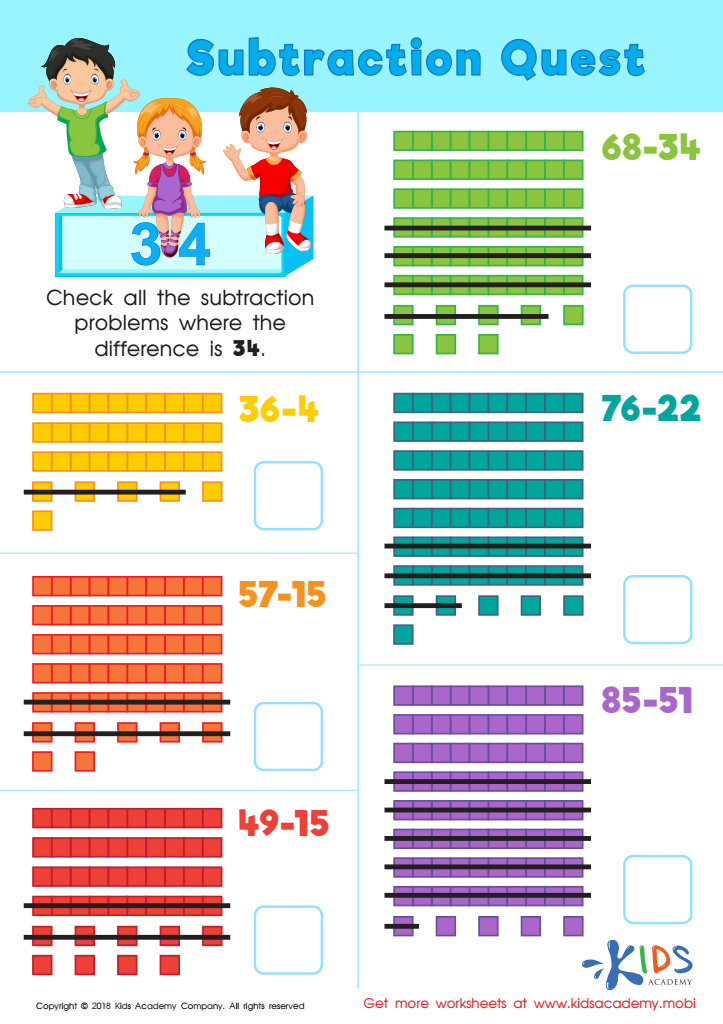

Subtraction Quest Worksheet
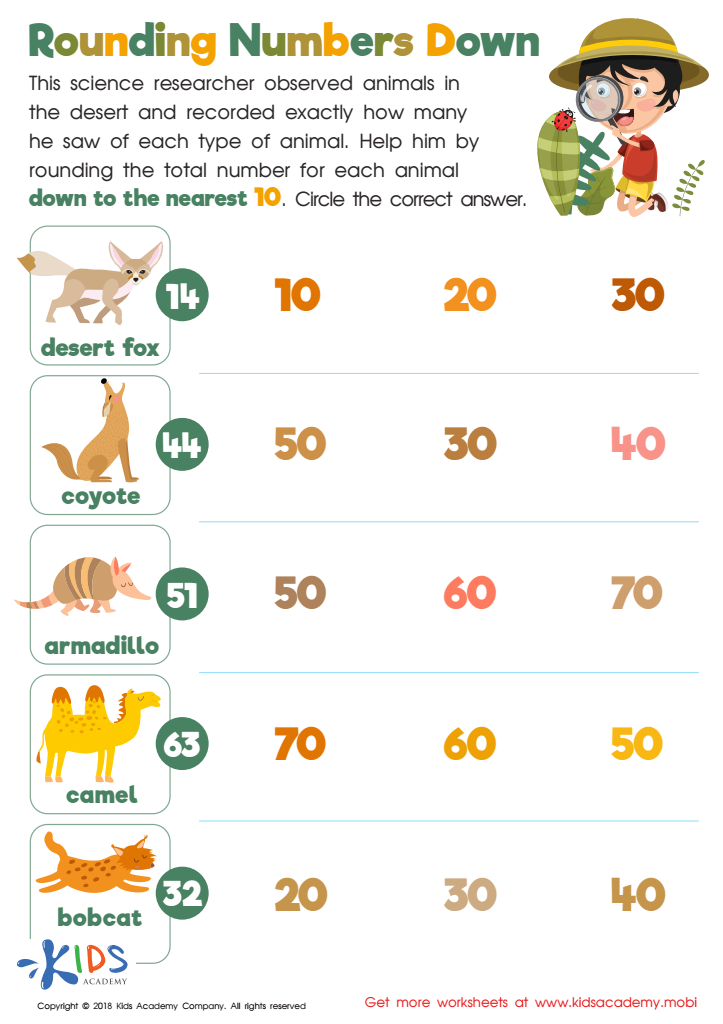

Rounding Numbers Down Worksheet
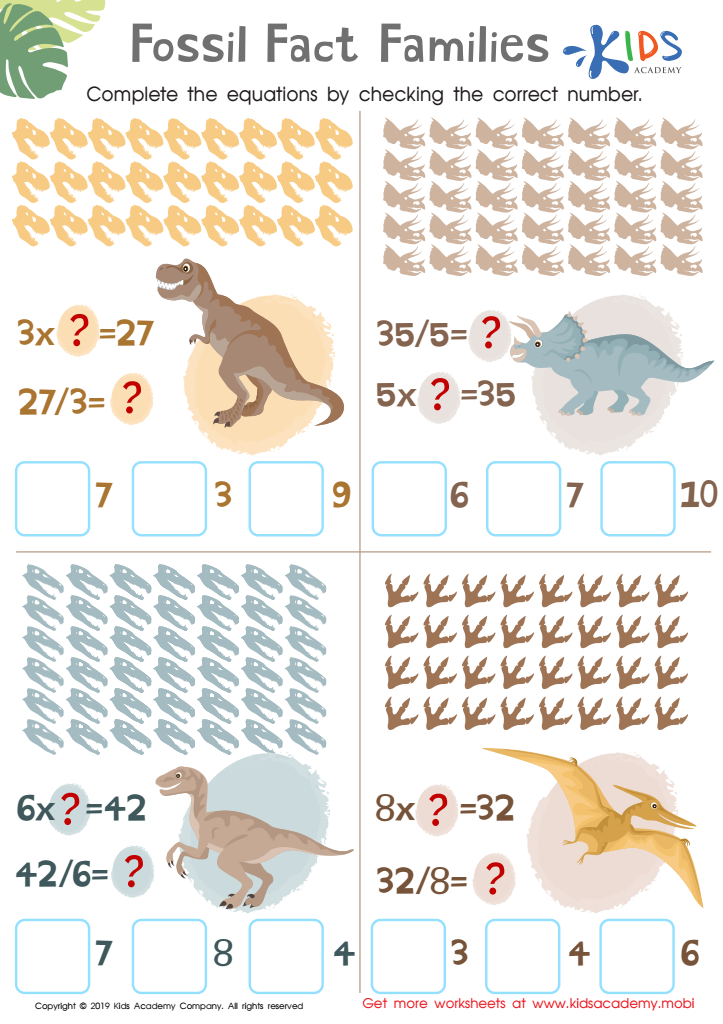

Fossil Fact Families Worksheet
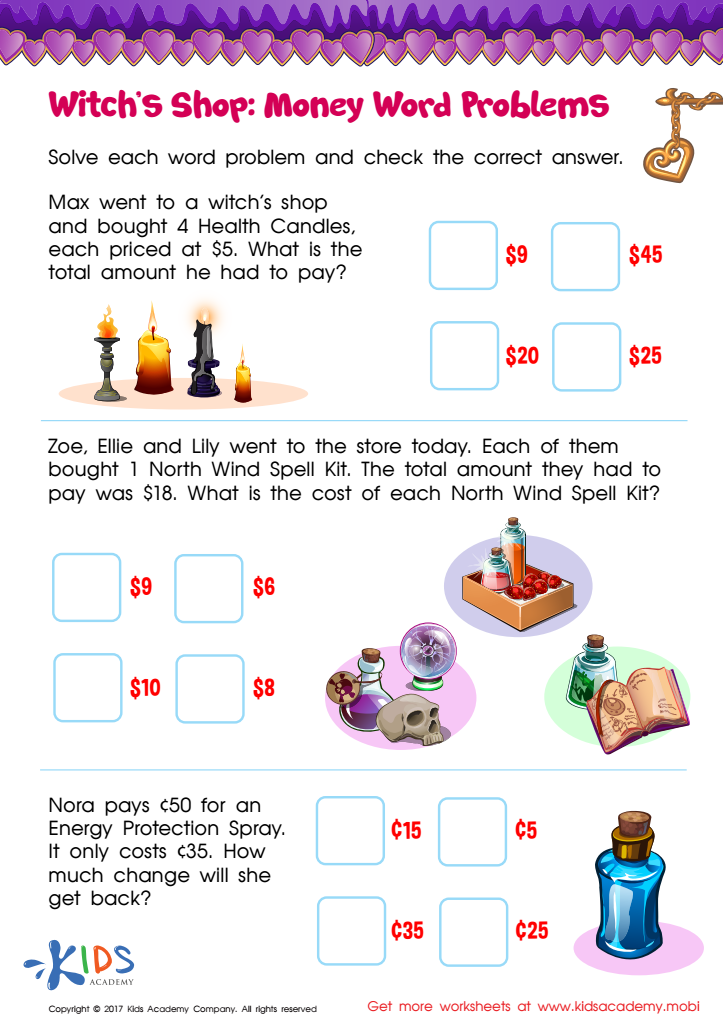

Money Word Problems Printable
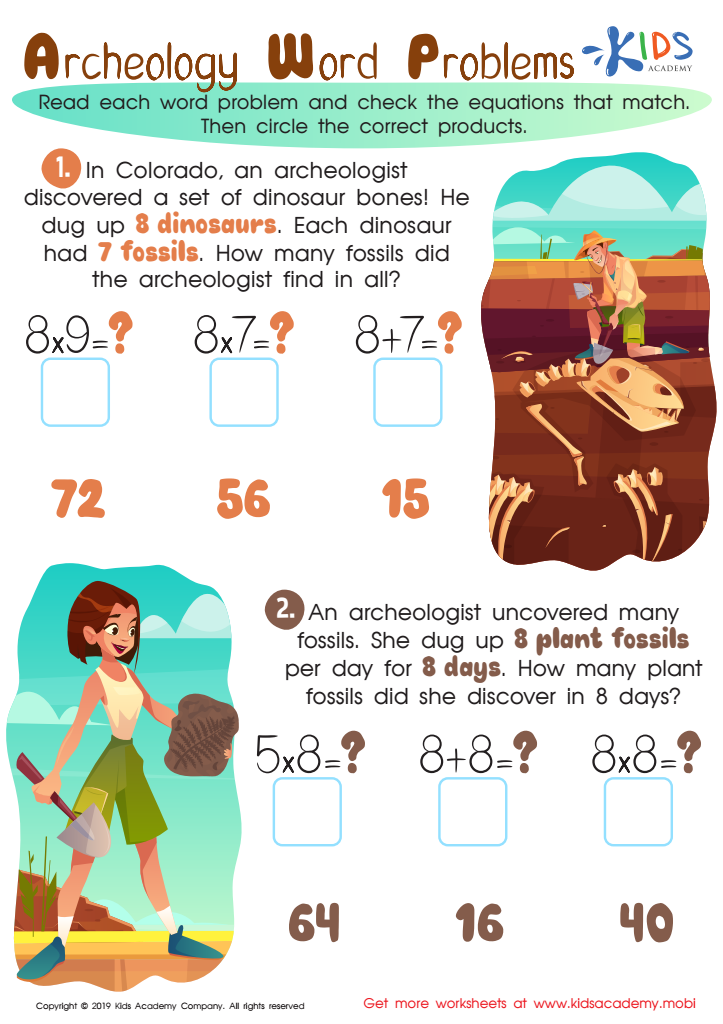

Archeology Word Problems Worksheet
Math problem-solving at an early age lays a critical foundation for children's overall academic success and cognitive development. Engaging in problem-solving activities enhances logical thinking and fosters patience and perseverance. For ages 5-8, math isn't just about numbers, but about developing a mindset for tackling challenges.
Early math problem-solving helps build essential skills like pattern recognition, sequencing, and spatial awareness. These skills are crucial, not just in math but across subjects such as science, reading comprehension, and even art. By learning to approach problems systematically, children develop a discipline of clear thinking and structured analysis.
Teachers and parents play a pivotal role by creating a supportive learning environment. Patience and encouragement from adults help build a child’s confidence in their ability to solve problems, which can translate into a positive attitude toward learning. When children successfully engage in problem-solving activities, they experience a sense of accomplishment that boosts their self-esteem and motivates further learning.
Moreover, early exposure to math problem-solving promotes cooperative learning. Activities such as group projects or peer problem-solving enhance communication skills and encourage teamwork. Therefore, valuing and investing in early math problem-solving for children is not just about improving math skills; it fosters a broad range of cognitive and social skills essential for lifelong learning and success. Teachers and parents should emphasize this aspect to support and strengthen the child's overall development.
 Assign to My Students
Assign to My Students






















